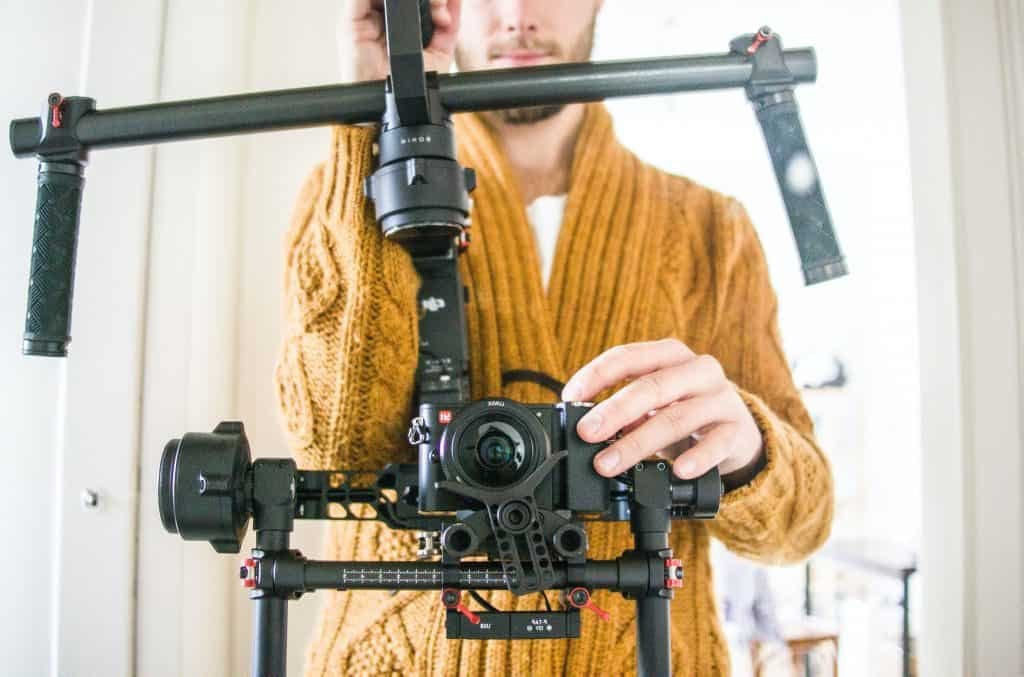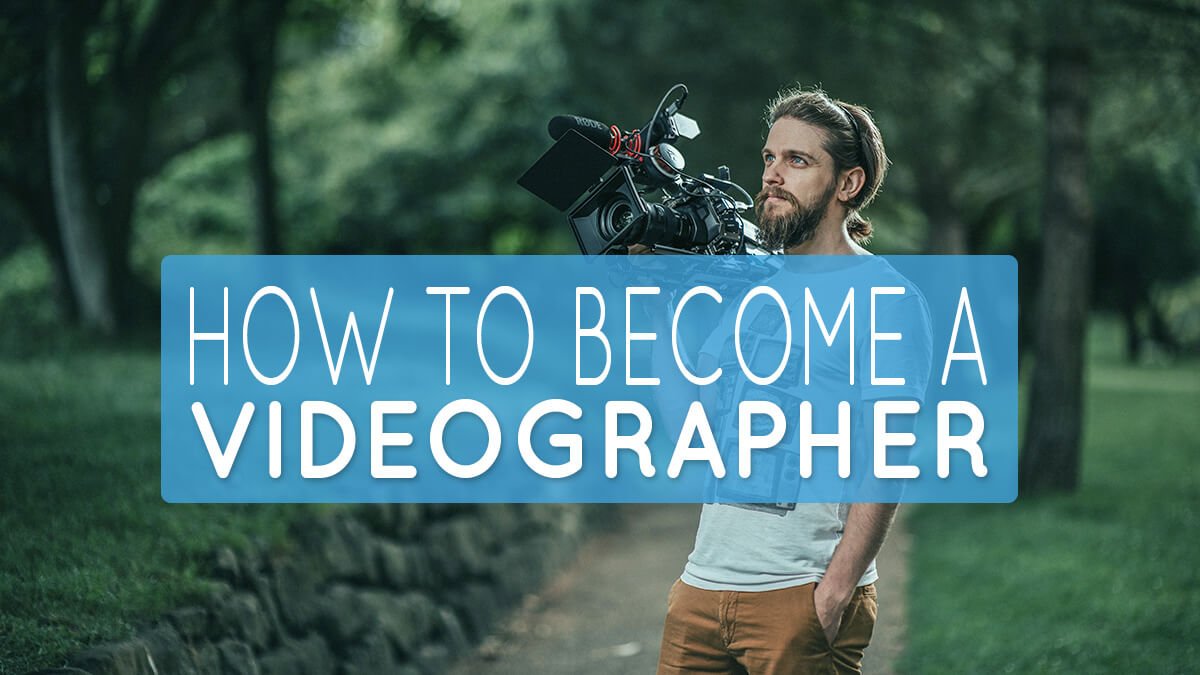If you’re interested in becoming a videographer, there are many things to consider. These include the skills required, the costs involved, and the deadlines. Luckily, there are several resources available to help you get started. Start by checking out Adorama to see what workshops or events are being held near you. Then, keep reading for some tips on how to become a videographer. Listed below are some of the best places to find workshops and events.
Career path
Becoming a videographer requires a creative mind and the ability to capture moments through video. You can work as a freelancer or for a company, creating content for online sites and documentaries, among other things. In either case, you’ll be challenged with creative thinking and will be able to follow your passion.
Most videographers begin their careers as assistants to more experienced video professionals. After gaining experience, they may advance to become camerapersons, editors, and producers. Some even reach the top executive levels of their companies. You can also pursue a career in legal video production and specialize in certain types of content. There are many different types of videography. Once you’ve decided on the type of work you’d like to do, you’ll be able to decide which path to take.
While having formal education to become a videographer is optional, you will need technical expertise. You can be an expert in some aspects of filmmaking, but you will need to know how to use gimbal systems and cameras effectively. In addition, you will need to be passionate about storytelling to successfully communicate your vision to others.
A videographer’s job is demanding and full-time. Not only do they have to make critical creative and technical decisions, but they also have to spend long hours on shoot sites. They’ll need to stay at locations for days or even months. They may even have to work overtime.
A degree in film and video production is vital for many videographers and essential to selling themselves as professionals. Graduates can also pursue careers as film editors. Assistant editors help ensure synchronization and prepare segments for editing, while video and film editors make actual edits.
Skills needed

If you’d like to start a career as a videographer, there are some skills you must develop. These skills include learning to use video editing software and learning how to use it. You should also become familiar with social media and be able to use it to connect with other professionals in the industry. Moreover, it would help if you learned how to use lighting and how to use special effects.
Videography requires an eye for detail and a keen eye for creativity. You must also understand the project’s concept and communicate well with clients. Moreover, you must be able to translate your ideas on film and use them to create a powerful message for the client. You also need to be able to work long hours and troubleshoot any equipment problems.
Your resume should highlight all your relevant skills, experience, and expertise. You should also include a professional summary. In addition, you should be able to tell the hiring manager about the type of projects you have worked on. It should also include how you helped other people. For example, if you’ve worked on a video project for a charity, you should include information about your work with the organization and how you have used your skills in the past.
Videographers also need good communication skills. This is important, both on and off-set, because they often interact with clients. You may have to discuss changes in lighting during the shoot. In addition, you should have good editing skills. These skills are essential for ensuring the video flows smoothly. They should also know how to add music and sound effects.
Costs
The videography cost can vary greatly, depending on the project’s complexity and the number of shoot days needed. Full-day shoots are typically eight hours long, while half-day shoots are four hours long. Pre-production planning for both shoots takes about the same time, though a half-day shoot includes an additional two or three hours of gear set-up.
In addition to shooting time, videographers often charge for equipment. This helps them cover the cost of purchasing and protecting expensive video equipment. For larger productions, videographers might have to rent film equipment. Most companies pass these costs to their clients, although some include them in their flat-rate fees.
The cost of video production will also depend on the type of video produced. Animated videos and cinematic commercials require different skills and cost more than a standard commercial. The amount you pay will depend on the length of the video, the number of locations, and the number of days needed for shooting.
A modest budget of $1500 will be insufficient if you want a high-quality video. It would be best if you aimed to spend at least six or ten thousand dollars. This way, you will get a high-quality video lasting at least three years. It will also pay for itself within a few months if the video increases conversion rates.
While the costs of videography may seem prohibitive, it is essential to remember that a high-quality video will significantly impact your audience. By comparison, a low-quality video will have a minor impact on your business’s bottom line.
Deadlines
When hiring a videographer, it’s essential to set a clear deadline. You should include an interim deadline that accounts for the process, including delivery of the final product, review period, and payment. Often, videographers watermark drafts before final payment, so make sure to communicate those details upfront.
A videographer’s agreement will contain the details of your shoot, including your specific requirements and the location of the shoot. A contract will minimize the chances of any omission or change and help you ensure your shoot goes off without a hitch. In addition to a clear timeline, it will also include the responsibilities of other parties.
Video production can be expensive, and a strict timeline is essential to stay on budget. A good video production schedule is critical in sticking to the budget and completing the project on time. Deadlines are essential to keeping everything moving in the right direction, but they aren’t the end-all-be-all of video production.
The best videographers work well under deadlines. They adhere to them and deliver their work on time. They also don’t procrastinate and don’t take on more work than they can handle. They strive for quality, not speed. They must be organized, hardworking, and able to multitask.
In addition to deadlines, clients often require feedback, which can cause problems. They can’t be everywhere at once, so they must plan their positions meticulously. A timeline will allow them to plan their days accordingly. A deadline will help them arrive with confidence. It also helps other parties to prepare. If you’re a videographer, deadlines are essential to ensuring the success of your projects.
Equipment

Videography equipment is necessary for filmmakers who want to produce high-quality content. Specialty video production equipment can give you Hollywood-style shots. For example, you can get a macro lens for taking close-ups of inanimate objects. You can also find a kit that can meet the needs of various videographers.
The camera you choose for a project is essential equipment for videographers. It will determine the type of project you plan to shoot and how it will be viewed. For example, the type of camera you need for a television news report differs from the one you would need for an online-only project. And if you don’t want to invest in expensive equipment, you can even shoot with your phone. For example, acclaimed filmmaker Sean Baker shot Tangerine on an iPhone using downloaded apps.
You’ll also need a tripod, which helps keep your camera still while filming. It also allows you to zoom around a room without a video shake. You may also want to invest in a boom pole operator. These devices can be used for various purposes, from shooting home video movies to creating professional-looking movies.
The boom pole allows you to film multiple subjects simultaneously and is perfect for crowds or large groups. Another essential equipment for videographers is a shotgun microphone, which helps capture audio cues in your subject. You can also use a portable digital audio recorder.
The video editing software you use is also an essential piece of video production equipment. You can use free programs such as YouTube, but if you need to add professional features, you’ll need video editing software. Many videographers prefer Adobe Premiere Elements 2022. It’s the industry leader and offers a wide range of editing tools.

Average Rating